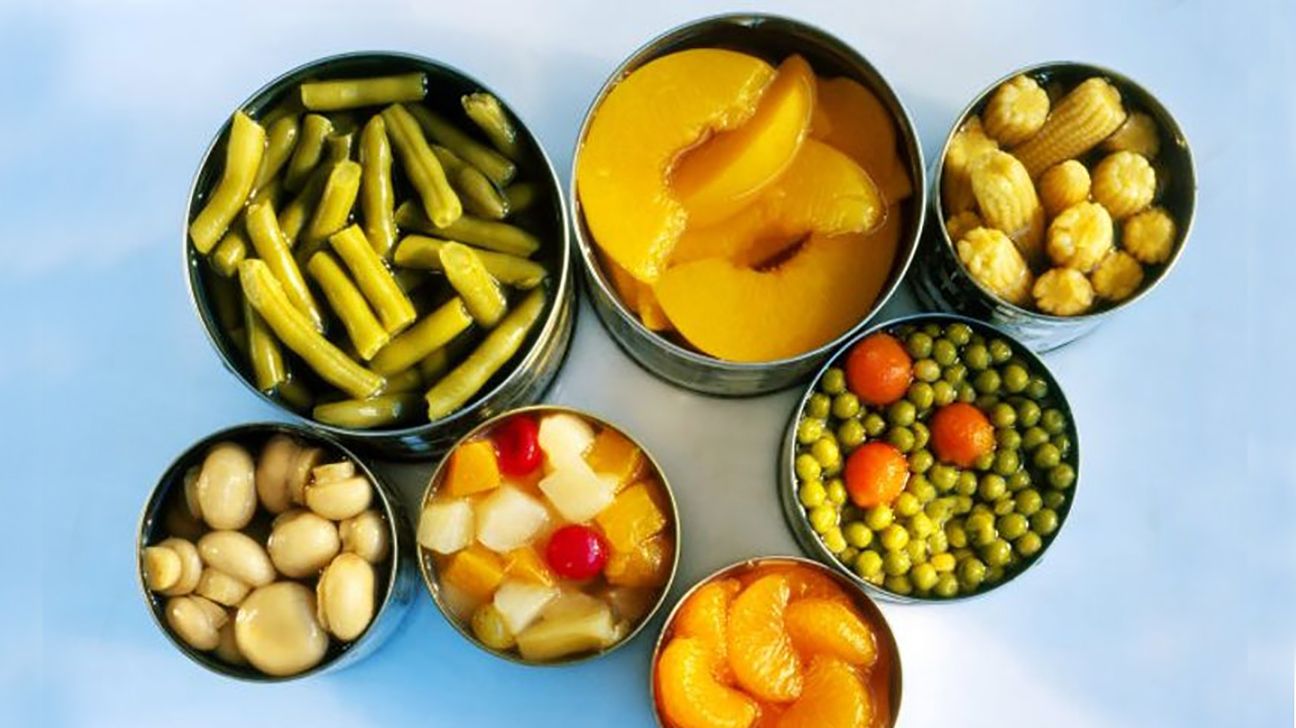Be smart about stocking your pantry.

We include products we think are useful for our readers. If you buy through links on this page, we may earn a small commission. Here’s our process.
With a pandemic forcing us all to cook more often from pantry staples and non-perishable stores, canned food has probably never been more popular. But what’s the best canned food to stock from a nutritional point of view?
Canned foods are convenient, affordable, and easy to stock for long periods of time. They can be a simple solution to many shopping and cooking problems. Their health implications, however, are less clear. When it comes to the nutritional value (or lack thereof) of these products, there’s a wide range of opinions.
“People should treat canned foods as they would any kind of food,” nutritional therapy practitioner and Life Health & Wellness Center CEO Asher Adelman says. “When shopping for canned foods, the best choices are real whole foods that aren’t processed and that don’t contain refined grains, sugar, or inflammatory vegetable oils like corn, canola, and soybean oils.”
Time to get more specific! Here are the details about the best and worst canned foods you can buy (for yourself or to donate), according to nutritionists and other nutrition experts.
Canned Pumpkin
According to Gabrielle McGrath, MS, RN, LDN of Lexi’s Clean Living, canned pumpkin is great to have on hand for its slew of health benefits. The nutrients and antioxidants in plain and canned pumpkin puree (without other additives) can boost your immune system, protect your eyesight, and lower your risk of chronic disease. Look for brands that list simply “organic pumpkin” on the ingredients list.
High-Quality Protein Sources (Chicken, Salmon, Tuna, Sardines)
Certified nutrition therapy practitioner Haley Halteman is cautious about the high sodium content of most canned foods, but she notes that canned chicken, salmon, tuna, and sardines can be great for a quick, high-protein meal…as long as the quality is right. Choose brands that are “organic, from pasture-raised or wild-caught sources, packaged in water, with no salt added.”
A Variety of Canned Vegetables
There are plenty of healthy options available among the canned vegetable selection at your local supermarket, but registered dietitian Jen Hernandezencourages you not to get too carried away, focusing instead on the canned veggies you think you’ll actually eat. Hernandez is a big fan of canned corn, green beans, and peas, all of which are best for you when marked low sodium and no added salt.
Canned Diced Tomatoes
McGrath regularly stocks diced tomatoes in her own kitchen for use in chilis, soups, and tomato sauces. Citric acid and calcium chloride are two ingredients frequently found in canned tomatoes and are nothing to be concerned about, according to McGrath.
Canned Beans and Lentils
Registered dietitian Bri Bell recommends keeping canned beans and lentils in your pantry. These legumes are healthy sources of protein, fiber, and carbohydrates, and can be easily added to everything from soups and chilis to salads and grain bowls. Steer away from added salt whenever possible.
Even for the “good” canned products listed above, there can be some variation in terms of ingredients and preparation. Stick to versions of allcanned foods with low sodium and no added sugar.
“It’s important to keep in mind there are unhealthy versions of anything canned,” McGrath says. “You need to look at the nutrition facts panel so you can fully understand what you are eating.”
And then there are the canned foods that should be avoided almost all the time…
Baked Beans
While many nutrition pros swear by the health benefits of canned beans, McGrath is cautious about purchasing baked beans in a can. Canned baked beans, she says, are often loaded with saturated fat, sugar, and unnecessary additives. If you love baked beans, go the homemade route, instead.
Canned Soups
Sorry to burst your bubble on your favorite feel-good canned soups, but many of these products are not approved by nutritionists. “A no no for me is canned soups,” Hernandez says. “Not only are they often more than a day’s worth of sodium, they just don’t taste as good as homemade!” Making homemade soup is a commitment, but don’t be intimidated—there are plenty of manageable DIY recipes out there for everything from Easy Lentil Soup to Classic Tomato Soup.
Canned Fruit Packaged in Syrup
There are some canned fruit options that can be a healthy snack or add-on to yogurt or oatmeal, but nutritionist Lisa Richards notes that many brands package their fruit in syrup. This does, of course, help retain the fruit’s sweet taste, but it’s also high in added sugar, which can increase inflammation and contribute to poor gut health.
Canned Pasta
Canned pastas (like the o-shaped ones you loved when you were a kid!) and other ready-made meals can be convenient to have around in a pinch, but they’re not recommended from a health perspective. Kiss My Keto registered dietitian Sofia Norton names these products among the worst canned options in the game, primarily because of their high levels of preservatives, additives, salt, and sugar.
Also Beware BPA
More generally, when reviewing your canned food options, Halteman recommends paying special attention to the way the can itself is made. Some brands use toxic chemicals like BPA to make their cans. BPA is an endocrine disruptor and can cause problems with hormone levels and increase the risk of heart complications, cancer, and other diseases. “This is the number-one thing to look for!” Halteman says.
It should be noted that as consumer awareness about and backlash to BPA has increased, many manufacturers have stopped using it (even if the labels don’t say so), but if you want to be extra-safe, you may still want to stay away from canned foods that aren’t specifically labeled BPA-free.
